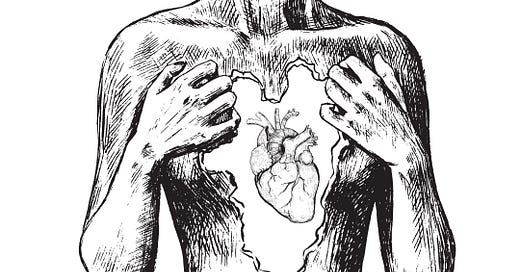Look Beyond the Quick Fixes of Personal Growth: Invest in Getting the Whole Picture.
The problem with quick fixes and not getting the whole picture in personal growth.
Are you getting the whole picture?
There’s an old parable about eight blind men who encounter an elephant for the first time. Each of them approaches the animal from a different angle and touches a different part of the elephant’s body. One man touches the elephant’s tail and says, “An elephant is like a rope.” Another touches its trunk and says, “No, it’s more like a snake.” Another touches its leg and says, “You’re all wrong - an elephant is like a tree trunk!”
Each of the men is convinced that their own perception is the truth, and they argue back and forth, unable to see the bigger picture. But of course, they’re all partially right and partially wrong - an elephant is made up of many different parts, and it takes all of them together to truly understand what an elephant is.
This story is often used as a metaphor for the limitations of individual perspectives, and the importance of seeking out multiple perspectives in order to gain a more complete understanding of a situation.
In the context of personal growth, it’s a reminder that there are many different approaches and philosophies out there, and no one way is the “right” way for everyone. Just like the eight men and the elephant, we need to be open to new perspectives and willing to consider different viewpoints if we want to gain a more holistic understanding of ourselves and our world.
We’re all different, but also more similar than we think.
Humans are more than just a sum of parts.
We are complex beings that cannot be reduced to a simple combination of individual characteristics or traits.
We are driven by our human nature and the evolutionary forces that shaped us.
Our brains, in particular, are a product of millions of years of evolution, with each layer of our brain representing a different stage in our development as a species.
The oldest part of our brain is the brainstem, which is responsible for regulating basic bodily functions like breathing and heart rate.
The next layer up is the limbic system, which is responsible for our emotions, memories, and motivation.
Finally, the newest and most complex layer is the neocortex, which is responsible for our higher cognitive functions like reasoning, problem-solving, and decision-making.
While our neocortex gives us the ability to reason and plan for the future, our limbic system and brainstem still play a critical role in shaping our thoughts, feelings, and behaviors. Together, these three layers make up what is sometimes called the “trifecta” of our evolutionary brains.
Recognizing the influence of our evolutionary brains is important because it helps us understand why we sometimes act in ways that may seem irrational or impulsive.
It also reminds us that our instincts and emotions are not something to be ignored or dismissed - they are an essential part of who we are as human beings.
By understanding - and working with - our evolutionary heritage, we can develop a more holistic understanding of ourselves and learn to navigate our lives in a more authentic and fulfilling way.
Building castles on moving sands.
These days, we’re bombarded with quick fixes, easy solutions, and catchy phrases.
Everyone’s trying to simplify everything so we can swallow it whole without even thinking.
But the problem is, when we break things down into little sound bites, we end up missing the bigger picture.
It’s like building a Frankenstein of personal growth. We take bits and pieces from here and there, trying to create this perfect being that’s supposed to make us the happiest, healthiest, most successful versions of ourselves. But the truth is, it’s a distorted picture. We’re taking ideas from different people, different contexts, different cultures, and trying to mash them all together into something that’s supposed to work for us.
And the worst part is, so many of these “experts” out there are trying to sell us on the idea that their way is THE way.
They’re trying to convince us that their approach is the only one that will work, when in reality, it’s just one piece of the puzzle; it often seems to work until another piece shows up.
So if you’re feeling like you’re struggling to figure out what the hell you’re supposed to be doing with your life, take a step back and think about the bigger picture.
Don’t get too caught up in the sound bites and hacks and “atomic” everything. Remember that personal growth is a journey, and it’s different for everyone. It will take longer than you think and it will be often frustrating.
Learn how to operate the machine you inhibit: focus on the basics first and go from there.
Just because we’re complex being, doesn’t mean it all has to be complicated! Remembering the whole picture can make it make it much easier.




